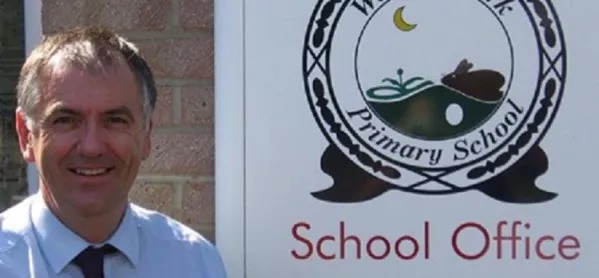The government’s education White Paper, published last month, plainly states that ministers hope to raise the bar for entry into our beloved profession. The theory behind this is nearly as old as time itself: that making teachers more qualified will make them better in the classroom.
Too few people ever stop to ask, do increased qualifications actually create better teachers? Personally, I doubt it. It made me think though about the children and what they would say about the whole recruitment process.
As we’re currently appointing staff for September, I took time out to talk in-depth with my children about what “qualifications” they saw as the most important attributes to find at the front of their classrooms.
Unsurprisingly, all the children wanted a positive relationship with the teacher. In fact, they thought this was essential. They also talked of those teachers who made them work harder, and how they achieved this, and those who didn’t.
In fact, the children had very clear, and very similar, views on what a good teacher looks and sounds like.
What pupils want from a teacher
A good teacher, according to my pupils, is someone who......
• … is friendly towards them and their peers. In fact, there was an expectation that individuals should feel special in the presence of the teacher;
• … recognises that learning is important but that it also can be hard sometimes. So the teacher should always take the time to ensure that the class know what is expected of them;
• … genuinely cares about every child, and wants to be involved in all their individual successes and failures;
• … is always enthusiastic about all aspects of school;
• … actually notices when individuals try their best, and encourages them when things get tough;
• … truly respects the fact that every child is different;
• … makes every aspect of learning and class time exciting.
How perceptive these children are. Do we as leaders have the same aspirations?, I ask. Too often I think the answer is no.
For example, schools seem to have moved towards a system of observing teachers prior to interviewing them, often with children they do not know. We spend time poring over their planning, and their organisational skills, and their use of ICT etc - all very laudable assets.
All before a fairly inane interview with fairly inane questions.
I sometimes wonder whether we have lost sight of the fact that we are a people-based profession, and that at its core it is about relationship-building. How often do you see incredibly organised individuals who simply cannot relate to others?
And in an era of a fairly profound teacher recruitment crisis, we even find ourselves in danger of appointing staff who do not want to be teachers, just to put a body in front of the class!
The first and ultimately the most important question we should ask ourselves at the interview stage is whether the candidate actually likes children. Is the person in front of us someone who can get in the minds of the child? As well as setting challenging and exciting lessons and assignments, will they utilise the child’s most precious gift - their imagination?
If we appoint teachers using this criteria, I know our children will be in very safe hands.
Colin Harris is headteacher of Warren Park Primary School in Havant, Hampshire
Want to keep up with the latest education news and opinion? Follow TES on Twitter and like TES on Facebook




